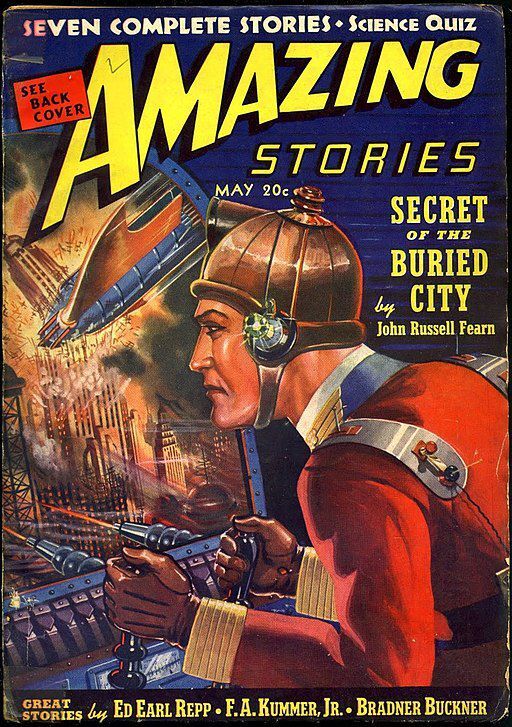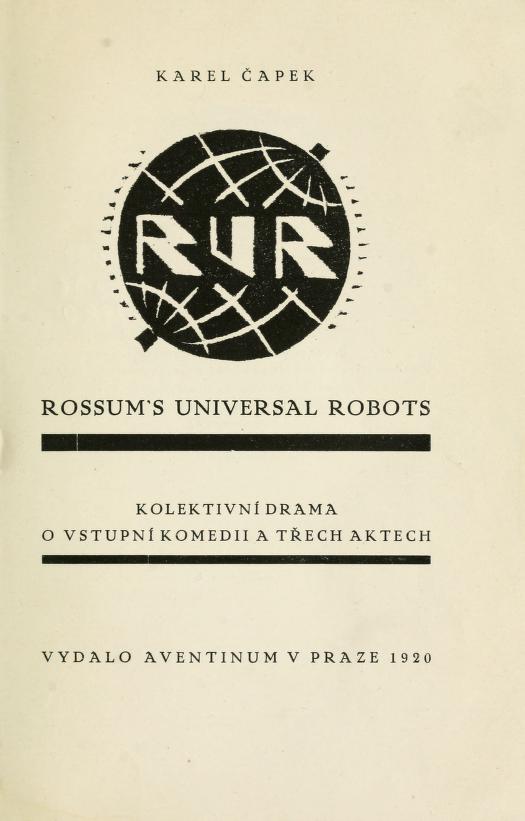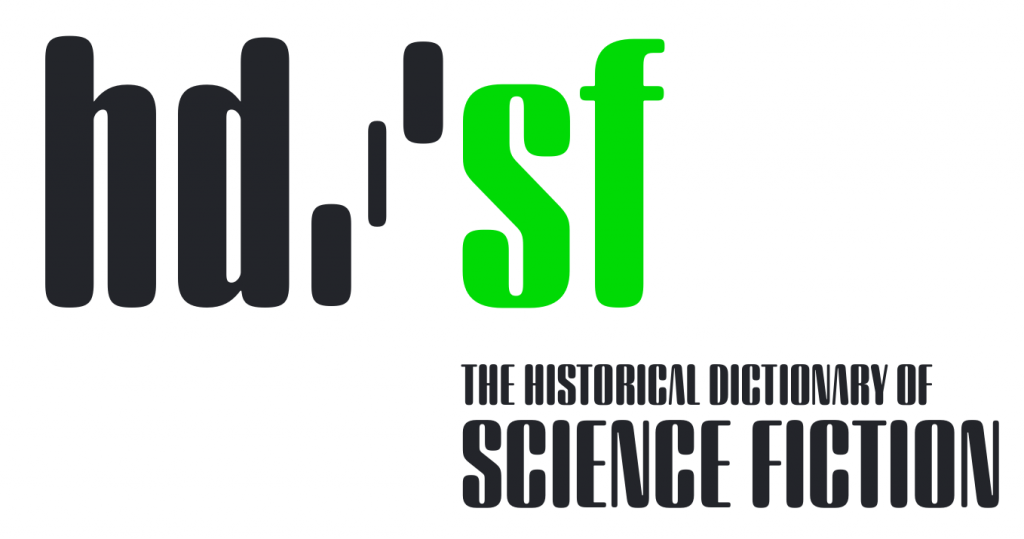Fans of science fiction learned last week that the word “robot” was first used in 1920—a full three years earlier than originally thought.
The “massively important yet obvious” change in date was confirmed with a search of the Internet Archive, which has a digitized first edition of the Czech play, R.U.R. Rossum’s Universal Robots, published in 1920. There on the title page, hiding in plain sight in an English-language subtitle to the work, is the earliest known use of the word “robot.”
This important piece of information is one of many little-known facts captured in the Historical Dictionary of Science Fiction. The project was completed this year by historian Jesse Sheidlower, who credits two things that enabled him to publish this project, decades in the making. “One, we had a pandemic so I had a lot of enforced time at home that I could spend on it,” explained Sheidlower. “The second was the existence of the Internet Archive. Because it turns out the Internet Archive has the Pulp Magazine collection that holds almost all the science fiction pulps from this core period.”
The New York-based lexicographer—a person who compiles dictionaries—sat down with the Internet Archive’s Director of Partnerships, Wendy Hanamura, to demonstrate how he goes about his work.
The comprehensive, online dictionary includes not only definitions, but also how nearly 1,800 sci-fi terms were first used, and their context over time. From “actifan” to “zine,” the historical evolution of the core vocabulary of science fiction is now online, linked to original sources in the Internet Archive and beyond.
The project began nearly twenty years ago at Oxford English Dictionary (OED) as the Science Fiction Citations Project. The idea was that science fiction fans would send in references from mid-20th century pop culture materials that weren’t otherwise archived in libraries. Back then, volunteers mailed in citations they found in books and magazines, and moderators entered the details into a database of these crowdsourced references. In 2007, the project resulted in Brave New Words: The Oxford Dictionary of Science Fiction, edited by Jeff Prutcher.

Sheidlower moved on from the OED in 2013. But the potential of this dictionary of science fiction never left him. Sheidlower’s vision was to make the resource even more useful to the public by completing the work and offering it for free use. In 2020, OED gave him permission to dive back in. Working from home during the pandemic, the editor discovered the Internet Archive had a rich Pulp Magazine collection that he could tap into from his desk in New York.
“Instead of hoping that someone, somewhere might have something and send it in, I could just search at the Archive. It made research much easier,” Sheidlower says. He then linked any piece of information cited to the original sources online—providing readers with an avenue for more details to keep reading.
In January, the first public version of the dictionary was made available via a new website, built by Sheidlower.
Because it is in a digital format, readers can search for terms—such as “transporter” or “hyperspace”—and be directed to the entry, complete with quotes and links to click through to the original source where it first appeared. There are also hundreds of pending entries that are being considered for inclusion in the dictionary, which is a living document that can be updated in response to reader suggestions, Sheidlower says.
Response so far to the revised dictionary has been positive from readers and the media. “I hope that the dictionary is of broad interest to anyone,” Sheidlower says. “Anyone, almost anywhere, can have access to the same kind of resources now. You don’t need to have people physically in libraries reading through absolutely everything, you can do a lot of searching online. The barrier to entry for this kind of research is reduced. Anyone can make contributions.”
Sheidlower comes to this work with a background studying in the classics, linguistics, Latin and the history of the English language. He worked in the dictionary department at Random House, before moving to the OED. Sheidlower also does language consulting for television shows such as Amazon’s “The Man in the High Castle,” to ensure that expressions being used match the historical period.


This really isn’t new information… it was easily discoverable by doing a quick web search on the phrase “the first use of the word robot”
https://duckduckgo.com/?q=the+first+use+of+the+word+robot&atb=v250-1&ia=web
I’m not sure how 1920 is a surprise. The 1987 Supplement to the OED has the 1920 date.
Seriously, you have “discovered” that Robot was first used by Čápek in R.U.R? I personally have known this for at least 30 years, and am flabbergasted that you didn’t even bother to check references on Wikipedia. For instance, this one from 2013 – https://web.archive.org/web/20130123023343/http://capek.misto.cz/english/robot.html .
The video elaborates on the new understanding about the date 1920. You’re all right – everyone knows that “robot” was first used in R.U.R. in 1920. The subtitle “Rossum’s Universal Robot” was thought to be an English translation, but the English subtitle is in English in the original, antedating the first use of “robot” in English from 1923 to R.U.R. in 1920.
Circa 1972, I read a science fiction novel in my junior high school (personal choice from its library; not assigned reading) about a dystopian future Earth, where blacks have become the majority populace following a post-nuclear world. The story is told from the viewpoint of a teenaged black girl, who, through her travels, meets a white boy (having never seen a white, before), and, together, they find a wrecked helicopter that, miraculously, runs, and, even more miraculously, if not preposterously, she manages to fly it! I can’t remember the title or anything else about it, but, I’d love to read it, again. Any ideas?